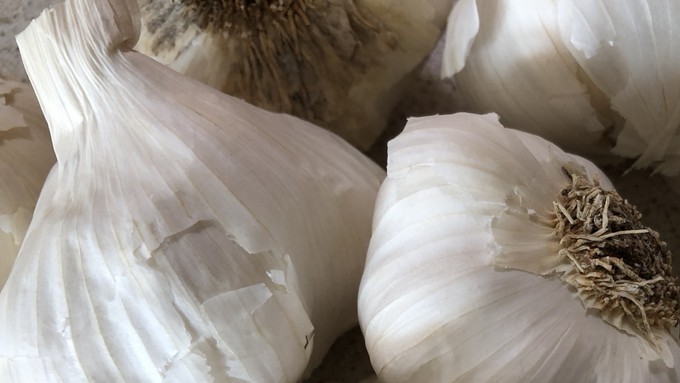
Yolo County master gardeners' monthly talk looks to fall

Planting typically begins in October, but it's good to know ahead of time the types of garlic that are right for the region. Kathy Morrison
If you're up on your Greek myths, you'll remember that Persephone was the daughter of Demeter, goddess of the harvest, and Zeus. Persephone was abducted by Hades, god of the underworld, who after Zeus' intervention permitted her to live "up top" two-thirds of the year, and one-third with him. Demeter is happy and tends the havest, so the story goes, while her daughter is present, but shuts everything down during those months when she's gone.
When our daylight drops below 10 hours per day, we enter what horticulture folks have dubbed the "Persephone Period." In the Sacramento area this year, that period begins on Nov. 19. Daylight will go back above 10 hours on Jan. 22, 2025.
This limitation of daylight may affect human mood and activities somewhat, but it has a profound effect on our plants, especially edibles. Explaining that effect is part of the monthly Kitchen Garden Chat coming this Saturday online with the Yolo County master gardeners.
Master gardener Treva Valentine will also discuss seed saving and tips for garlic ordering. (Many popular varieties sell out, so it's good to have a couple of options.)
The one-hour Zoom workshop begins at 10 a.m. Saturday, Sept. 7. It is open to all interested gardeners. The Zoom link is: https://ucanr.zoom.us/j/98028723763
For more on Yolo master gardener activties, go to https://yolomg.ucanr.edu/
Comments
0 comments have been posted.Sacramento Digs Gardening to your inbox.
Food in My Back Yard Series
April 1: Don't be fooled by these garden myths
March 25: Fertilizer tips: How to 'feed' your vegetables for healthy growth
March 18: Time to give vegetable seedlings some more space
March 11: Ways to win the fight against weeds
March 4: Potatoes from the garden
Feb. 25: Plant a fruit tree now -- for later
Feb. 18: How to squeeze more food into less space
Feb. 11: When to plant? Consider staggering your transplants
Feb. 4: Starting in seed starting
Sites We Like
Garden Checklist for week of March 30
Your garden doesn’t mind April showers. Get busy now to enjoy those future flowers.
* Get ready to swing into action in the vegetable garden. As nights warm up over 50 degrees, start setting out tomato, pepper and eggplant transplants.
* From seed, plant beans, beets, cantaloupes, carrots, corn, cucumbers, melons, pumpkins, radishes and squash. (Soak beet seeds overnight in water for better germination,)
* Plant onion sets.
* In the flower garden, plant seeds for asters, cosmos, celosia, marigolds, salvia, sunflowers and zinnias.
* Transplant petunias, zinnias, geraniums and other summer bloomers.
* Plant perennials and dahlia tubers for summer bloom.
* Transplant lettuce and cabbage seedlings.
* April is the last chance to plant citrus trees such as dwarf orange, lemon and kumquat. These trees also look good in landscaping and provide fresh fruit in winter.
* Smell orange blossoms? Feed citrus trees with a low dose of balanced fertilizer (such as 10-10-10) during bloom to help set fruit. Keep an eye out for ants.
* Apply slow-release fertilizer to the lawn.